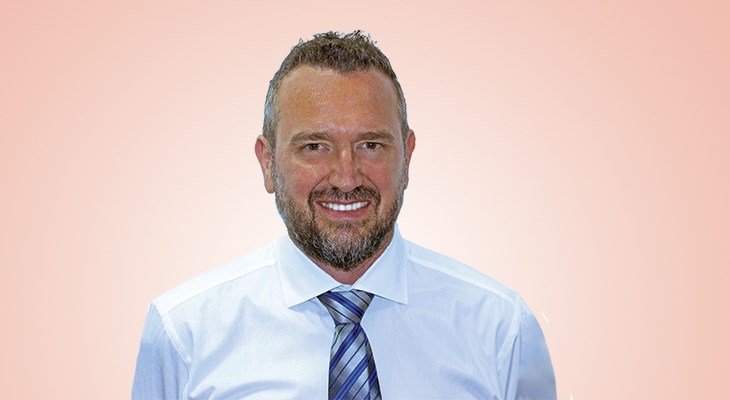Nick Mirchef’s son-in-law, Chris Pflanz, first introduced him to what would become SmartWitness in 2012. Back then, it was simply a dashcam tool for Mirchef to mitigate liabilities for the drivers of his 26-year-old family business’s service vehicles.
“The worst thing in a business owner’s life is when there is some kind of liability and they don’t know how to mitigate it because they don’t know all the color around it,” Mirchef says.
Mirchef realized how useful the tool was for his business and decided it could be something they could sell to others. The technology, in Mirchef's eyes, was as an adjacent solution to GPS tracking, which saw a huge boost in the late 1990s and into the 2000s.
Mirchef and Pflanz hit the tradeshow circuit trying to convince people the importance of video coinciding with the GPS. Their technology provided evidence for any accident, or even encounters between passengers and drivers for ride-hailing apps such as Lyft and Uber, in addition to other applications.
Since 2017, the company shipped more than 250,000 connected devices to customers and logs 50 million miles travelled per day. Its solutions are used by fleets across numerous market segments, including commercial trucking, federal and municipal fleets, school and public transit networks, as well as military and first responder vehicles.
With the early success, they were quickly looking to raise capital. They had many suiters.
SmartWitness raised $3 million in angel funding in 2019 and $4 million in Series A venture funding that same year in a deal led by First Analysis.
“After finding an investor that understands our value proposition and business model, I was able to concentrate on the details of the deal,” Mirchef says. “I think the stars were aligned or, you know, whatever it was at the time, but we were fortunate. We were literally growing at a rate about, I think, the average growth rate in the first five years was just around 200 percent, so we grew the business in five years to about $10 million gross revenue business, and we were fortunate to grow it that much because of the market.”
With an original goal of selling SmartWitness for $100 million, the co-founders earned approximately $200 million from Sensata Technologies, a global industrial technology company headquartered in Attleboro, MA.
It wasn’t an easy process, however. Mirchef allowed his team at SmartWitness to continue their day-to-day activities while he went through all the capital raises and eventual sale of the company.
“Handling the entire process on my own prolonged the timeline and it strained the business unnecessarily,” he says.
If he had to do it again, he says he would either better prepare the business to run with little involvement on his end, or hire someone to handle the raises and sale of the company while he focused on the day-to-day.
“To be very honest, the money you will spend and the time you will save is priceless,” Mirchef says. “It’s one of those things that actually balances out. On the other end, you may raise even more capital or not give up as much from your company if someone is helping you out.”
The cap raises and eventual sale of the of the company was such a prodigious learning experience for Mirchef and Pflanz, the duo decided to create a new company, an investment firm called SmoothBrain LLC, to help others about to go through the same process.
“We are doing a seed to Series A funding,” Mirchef says. “We set up this company to help entrepreneurs with exactly what I went through. By means of this, I mean finding capital, having advice on what we have been through and how we dealt with it and give them another point of view. Instead of learning from their mistakes, they can learn from my mistakes; it’s a much cheaper lesson to have.”
Nick Mirchef spoke on the Smart Business Dealmakers Podcast about his company, how it has raised capital, and how his experiences inspired him to help others doing that same thing.




